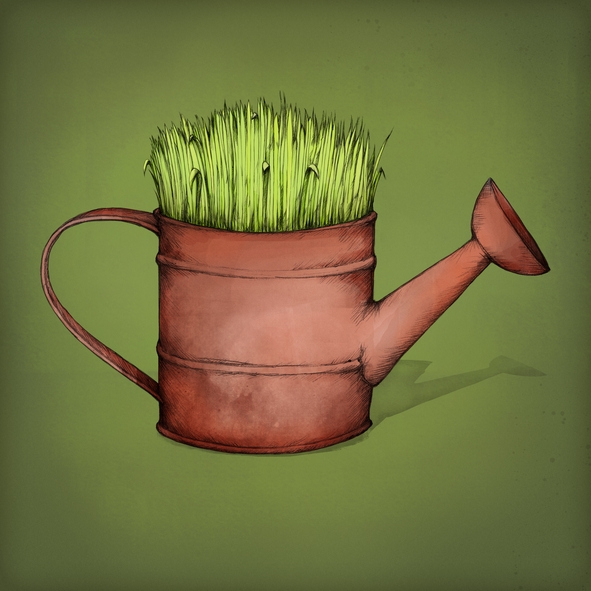You have /5 articles left.
Sign up for a free account or log in.

iStock/Annika Gandelheid
The long days of summer can be a great time to think about expanding your network -- especially if you have given some thought as to what career-related questions you have and who might be able to help you answer them. Whatever you do, though, don’t network like I garden -- it won’t turn out well.
You see, I’m not a good gardener. I’m not totally useless, mind you. I can pull up weeds, for example. I usually go for the “if it looks different from everything else, it is a weed” strategy, which admittedly has its drawbacks. Some weed-like plants actually turn out to be beautiful flowers -- or would have if I hadn’t pulled them up. I can mow the grass quite effectively, too. Of course, it doesn’t help that my cat likes to chew on my plants, and that I consider this great enrichment for my cat.
And that really is the problem, because I’m not very nurturing when it comes to plants. (My Ph.D. is in animal behavior for a reason.) So how does this all relate to career concerns? My point is, that, as with the plants in your garden, the people in your network need nurturing to thrive.
In terms of networking, nurturing is the part of the process where you continue to develop a professional relationship with someone with whom you’ve already initiated contact. After all, it is actually quite easy to meet new people and shake their hands. The challenge is how to keep the conversation going so that the professional relationship becomes beneficial in terms of helping you achieve some of your career goals. From a gardening perspective, if you want me to throw a packet of seeds into a patch of soil, that’s not a problem. If you actually want to eat some of the tomatoes that grow from those plants -- well, don’t hold your breath if I am involved.
People tend to make two common mistakes with their network. The first is what I tend to do with my houseplants: too much watering! Surely, they must need a drink today, I tell myself as I slowly drown them. In terms of networking, that would be like finding a great contact at an organization where you’d like to work and then initiating contact too frequently and without giving much thought to building the relationship.
Rather than doing some background research into their career field and industry so that you can ask interesting questions, perhaps you rely on your contact to answer a bunch of easy ones: “What does your company do?” “Who are your competitors?” “Can you give me feedback on my résumé?” “Do you have any open positions?” “What do I need to do to get a job in this industry?”
Take note of my advice here to see why this might not make your contact feel overly excited to chat with you. Your network contacts are like my houseplants: they need to hear from you every so often, but they don’t need to be drowned by a deluge of not-so-relevant information or questions that rely on them to do all the work for you.
For example, you might have recently had an informational interview with a senior scientist at a pharmaceutical company you are interested in, just to find out a little about the company and the person’s role. It is a great idea to keep in contact with this new addition to your network, perhaps by letting the person know you have spoken to someone to whom they referred you, or by forwarding a paper or article that touched on something you both have in common. But you definitely don’t want to email them repeatedly asking question after question. You can slowly kill off parts of your network with too much attention -- just ask my houseplants.
The other issue people often experience with networking is neglect. If I tend to overwater my inside plants, I seem to underwater the ones outside. I hope that my “let’s hope it rains a little each day so I don’t have to water my plants” strategy will work. It can … until it stops raining and gets very, very hot. And this might explain why my plants now look very sad. (I’ve started watering them again, but it may be too late.)
Too little attention to your network can be just as negative as too much. You shouldn’t network only when you need something, like a job. You should be networking and strengthening relationships with your contacts all the time, so that when you do need something, people are already thinking about you, sending you leads, recommending you, giving you referrals and so on. People know when you are just speaking with them to get something from them, and that is not the best way to develop a professional relationship.
Networking is about a mutual sharing of information and contacts. It will pay off in the future only if you invest in your network here in the present. If you haven’t spoken to an old Ph.D. adviser for five years and now need her help in writing a letter of recommendation for a job because your postdoc is ending, it is going to be difficult to get her to write a positive, convincing letter saying you are the right candidate for an editorial position -- especially if she had no idea you were even interested in being a journal editor. If you had kept in better, more frequent contact over the years, she would have known about the various steps you may have taken to gain editorial experiences, and she may have even been able to give you the name of a contact she had at, say, Springer Nature, who, quite coincidentally, happened to be her daughter’s boyfriend’s father.
So, to keep your network feeling nurtured:
- Value your contacts for who they are, not what they can give you. After a couple of interactions, ask if you can connect with them on LinkedIn. Once you do, congratulate them on promotions or work successes you might read about in their updates. A brief, positive, no-strings-attached statement in support of their work can do wonders for how they think about you (or how often they think about you). Similarly, post updates about yourself on LinkedIn so that they can reciprocate. Send other updates relevant to your past conversations. Tell them you enjoyed a book or website they recommended. If you have just submitted a paper, successfully applied for a grant or published a blog post, let them know and send a link if your update is sharable. Again, a no-strings-attached, no-response-necessary update keeps you top of their mind without them having to do anything. Since they are busy living their own hectic life, this works for them!
- Aim to grow your network over time so you are not overreliant on a small number of contacts. When you have established a good contact, make sure to ask if they have suggestions for people they know who might be able to give you additional perspectives on a topic. Since it is hard for anyone to remember everyone they know off the top of their head, look through their connections on LinkedIn and see if they know someone you are interested in chatting with. Ask whether they can recommend any professional associations they are part of where you might be able to continue your networking.
- Find a way to help people in your network. Perhaps you’ve come across an interesting article or a new contact you think they would be interested in meeting. Help them to learn about something new or to grow their own network.
Use some of these approaches to think about the best strategies to rejuvenate your relationships with contacts past and present. I’ll join you in this exercise as soon as I have pulled up some plants that may or may not be weeds, dusted my plastic houseplants (I know for sure that they are not thirsty) and had a long conversation with my cat about why eating plastic plants is not such a bright idea.








